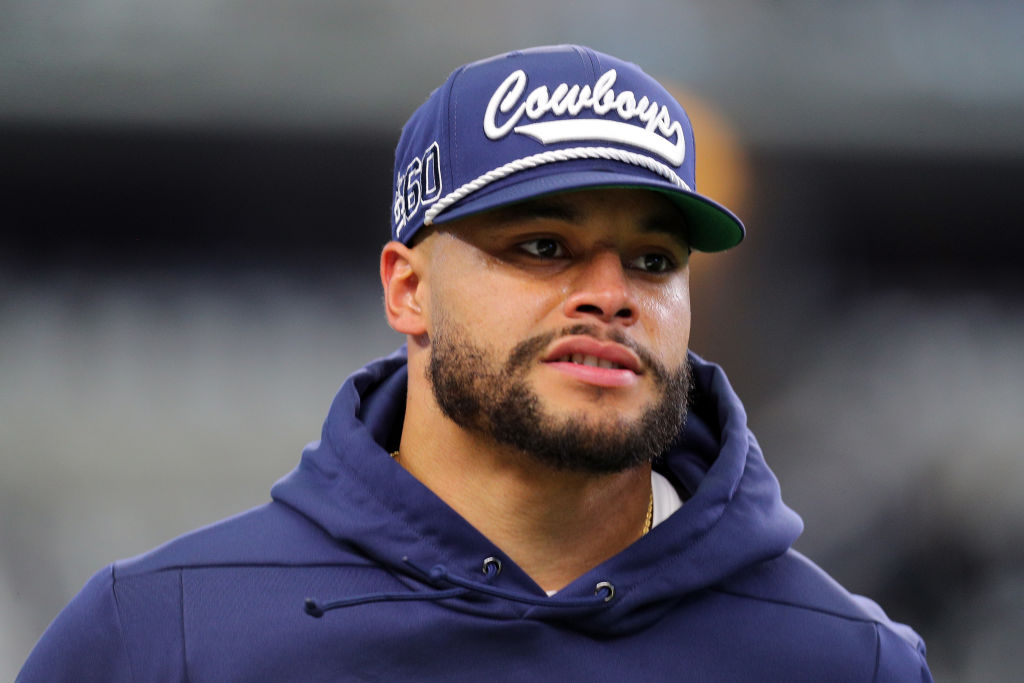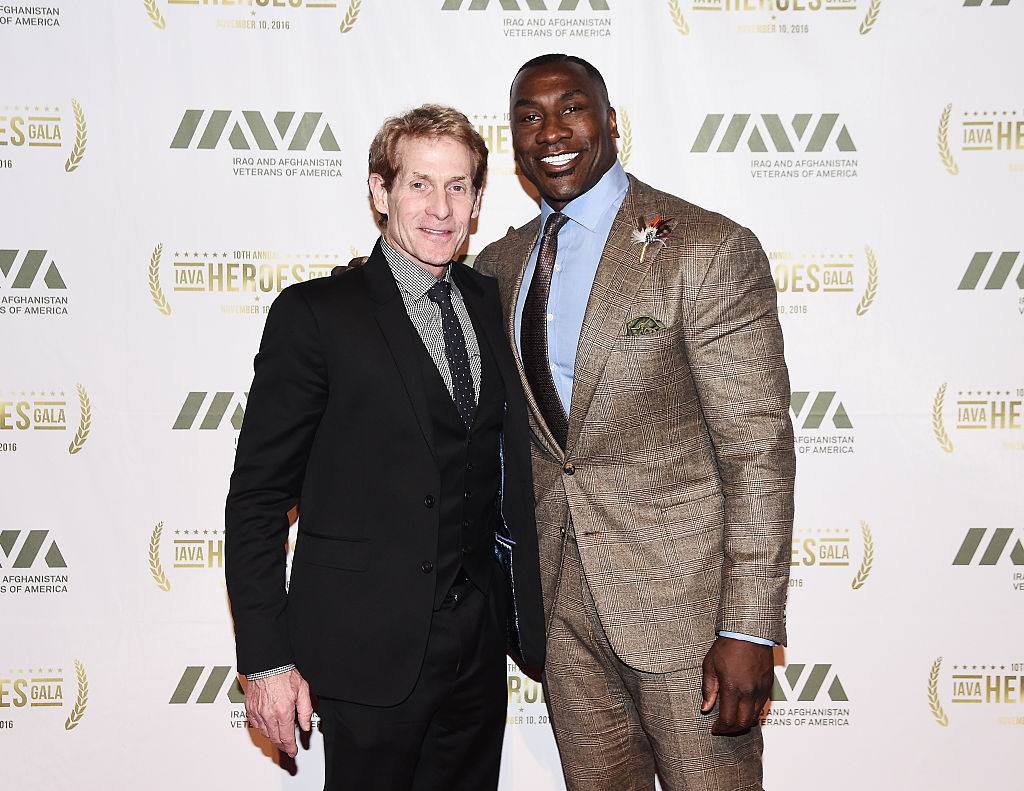Skip Bayless doesn’t ‘have sympathy’ over Dak Prescott sharing depression struggles
Skip Bayless says as the Cowboys leader, Dak Prescott shouldn't have revealed his personal struggles publicly
The NFL returns tonight and with it comes the first controversy of the season. Undisputed co-host Skip Bayless, an unabashed Dallas Cowboys fan despite his network affiliation, drew fire on social media after saying that Cowboys quarterback Dak Prescott shouldn’t have publicly revealed his struggle with depression.
Read More: Deshaun Watson is ready to speak out against racism in the NFL

“I have deep compassion for clinical depression but when it comes to an NFL team and you know this better than I do, it’s the ultimate leadership position in sports,” Bayless said to his co-host, former NFL tight end Shannon Sharpe.
“You’re commanding a lot of young men and some older men and they’re all looking at you to be their CEO, be in charge of the football team. Because of all that, I don’t have sympathy for him going public.”
Bayless’ statements came the day that Prescott revealed that suicide was the cause of death of his 31-year-old brother, Jace, who passed away in April. Bayless says he’s not including that in his take because Prescott said that he was challenged by depression even before his brother died due to the COVID-19 pandemic and other issues.

Bayless said that he, too struggled with depression this year, particularly as the pandemic laid waste to the normal sports season. He says he wasn’t sure that FS1, the network that airs Undisputed, would even survive.
But in the “dog-eat-dog” world of professional football, Bayless says, revealing any weakness makes you vulnerable on the field as other players will use it against you. After sharing that his own childhood had been tough, but he “worked through it” Bayless reiterated that he thought Prescott should have kept his struggles private.
“You can’t give into depression,” Bayless said. “You just have to rise above it.”
Sharpe provided a thoughtful comeback, declaring that athletes shouldn’t have to be stoic to the point of denying their humanity to maintain their ability to win.
“I understand that he plays quarterback, he’s the face of a franchise but take all of that away, he’s still human,” Sharpe said. “Sometimes people think because we play a sport, because he’s good at a sport, that we don’t have emotions, that we don’t have feelings, but he’s human.”
Sharpe added that it was important for men, especially Black men, to share and deal with their honest emotions in order to be better men and better teammates.
“There was a big stigma, and it’s starting to be lifted, especially as a Black man in America, in talking about mental illness. I think a lot of Black men deal with things [quietly] because they don’t want the shame, because they are going to be looked at as weak. I don’t look at it as being weak because I believe you can be weak and not be vulnerable and be vulnerable without being weak.”
Prescott said he’d been experiencing anxiety and depression even before his brother’s death. Although his brother didn’t talk about it, Dak says his brother was still in pain after their mother’s 2013 death from colon cancer.
He told Graham Bensinger that while he was away at school pursuing his dreams of being a professional athlete, Jace witnessed his mother’s suffering more than he or his oldest brother, Tad, did.
“You can’t even put into the words the burden,” Prescott said. “It’s something only Jace knew. And he didn’t necessarily share that. And Jace was never really much of a talker so when something like that was a huge burden on him, he didn’t know how to share it. He didn’t know how to be vulnerable about it.”
By sharing his own struggles and that of his brother’s, Prescott said that he’s come to realize that vulnerability is a strength.
Read More: NFL endzones to proclaim ‘End racism, it takes all of us’ for 2020-2021 season
“Our adversity, our struggles, what we go through is always going to be too much for ourselves and maybe too much for even one or two people, Prescott told Bensinger.
“But never too much for a community or never too much for the people and the family that you love. So we have to share those things.”
Have you subscribed to theGrio’s podcast “Dear Culture”? Download our newest episodes now!
.
